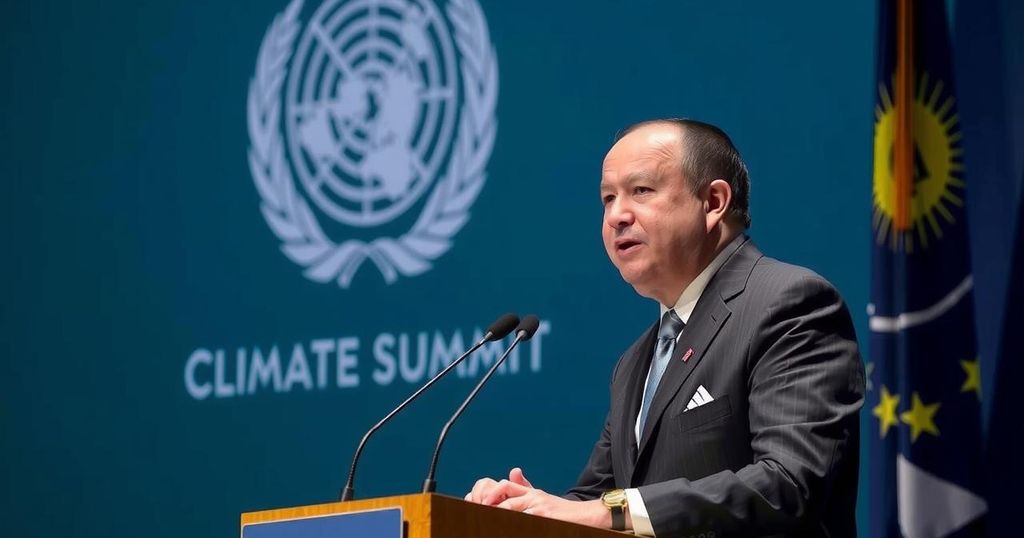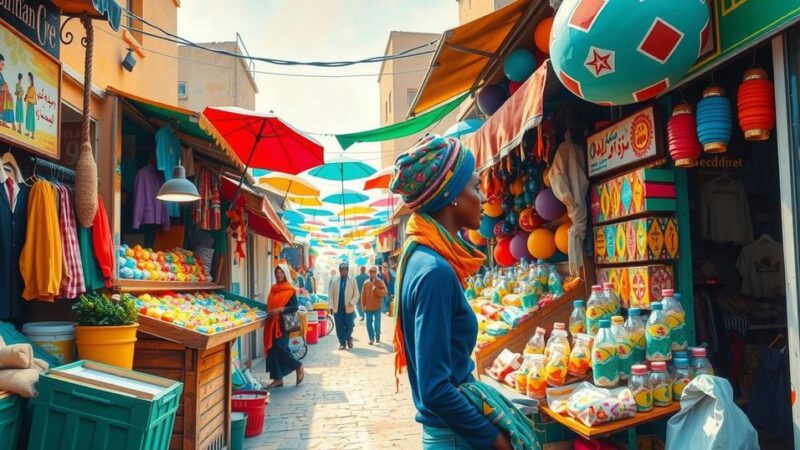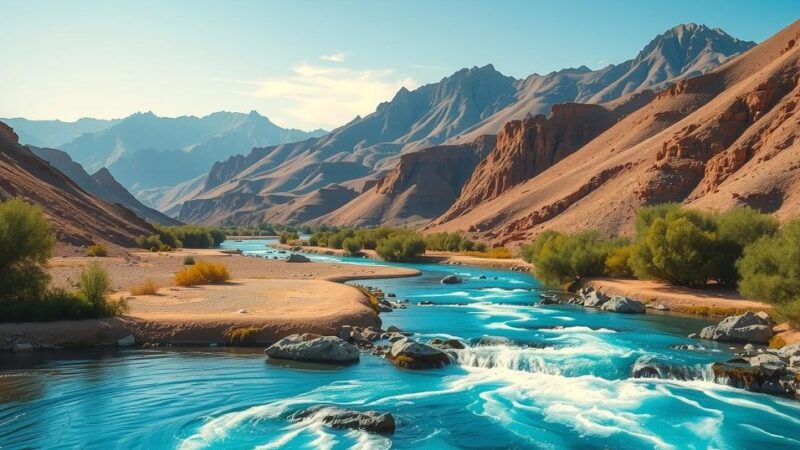At COP29 in Baku, negotiators from the Alliance of Small Island States (AOSIS) walked out of the climate talks in response to dismissive attitudes towards their financial requests. Michai Robertson expressed that this spontaneous act underscored their determination to be heard, marking a historic moment in the negotiations. Although AOSIS returned and an agreement for $300 billion in annual support until 2035 was reached, the figure fell short of their demands, showcasing the ongoing challenges faced by vulnerable nations.
During COP29 in Baku, Azerbaijan, a pivotal moment occurred when key negotiators from the Alliance of Small Island States (AOSIS) dramatically walked out of the climate talks. Michai Robertson, AOSIS’s finance negotiator, disclosed to BBC News that the group was on the verge of exiting the summit entirely after experiencing frustration from developed nations dismissing their pleas for increased financial assistance to combat climate change. The walkout transpired after extended negotiations had exceeded the allocated time by 19 hours, emphasizing the urgency of their demands. In a spontaneous act driven by escalating dissatisfaction, Robertson noted that delegates from AOSIS and the Least Developed Countries group left the meeting room together, signifying their determination not to be overlooked.
Robertson articulated that the walkout was not premeditated but rather a swift response driven by the sentiments expressed by their peers. Notably, the failure of developed nations to engage meaningfully in discussing financial support for urgent climate action resulted in this historic action, marking the first and only instance of AOSIS exiting negotiations in the nearly three-decade history of UN climate summits. The group, representing 43 island nations, highlighted their vulnerability to climate impacts and reiterated their commitment to the goal of limiting global temperature rise to 1.5 degrees Celsius above pre-industrial levels.
Eventually, following this high-stakes moment, AOSIS returned to the negotiating table, and a tentative agreement was reached, outlining provisions for $300 billion a year in assistance to developing nations until 2035. However, they indicated that this figure was insufficient when compared to their demands for $500 billion annually. While Mr. Robertson expressed disappointment with the final outcome, he affirmed that the experience had demonstrated the negotiating power of AOSIS, underlining that their concerns must be taken seriously in future discussions.
The Alliance of Small Island States (AOSIS) is a coalition of countries and territories that face significant threats from climate change due to their geographic vulnerability. These nations often advocate for more substantial financial and technological support from developed countries to address impacts such as coastal erosion and severe weather events. COP29, held in Baku, served as a platform for negotiating international climate agreements, bringing to light the struggles and demands of smaller nations like those within AOSIS and the Least Developed Countries (LDC) block. The ongoing challenge faced by these nations is a lack of sufficient commitments from wealthier nations, which they believe directly threatens their survival and the preservation of their ecosystems.
The recent developments at COP29 underscore the critical importance of addressing the needs of vulnerable nations in the climate negotiations. The walkout by AOSIS signifies a profound message regarding the urgency and seriousness of their plight amidst a backdrop of inadequate financial commitments from developed nations. Moving forward, the challenge will be ensuring that future discussions yield tangible support to address the global climate crisis in a manner that respects the voices and needs of the most affected populations. AOSIS’s actions have not only highlighted their tenacity but also reinforced their position as essential stakeholders in the fight against climate change.
Original Source: www.bbc.com






